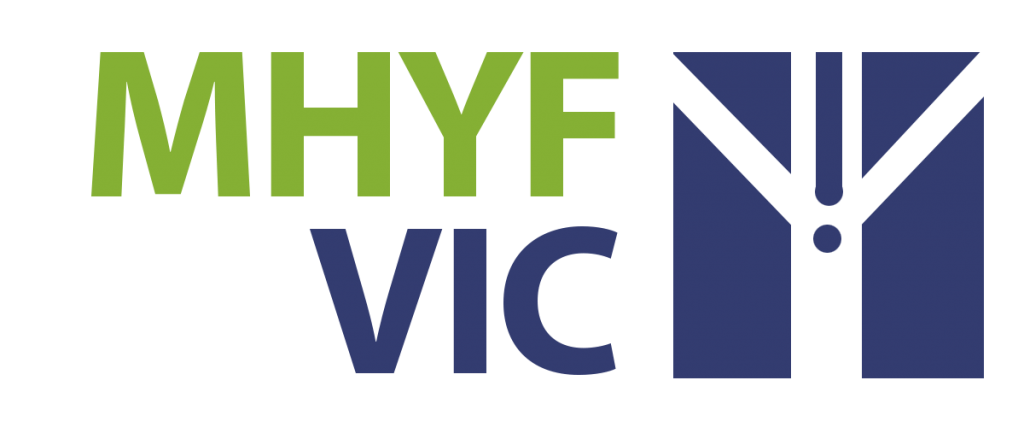
Mental Health for the Young & their Families in Victoria is a collaborative partnership between mental health & other health professionals, service users & the general public.
Mailing Address
MHYFVic
PO Box 206,
Parkville, Vic 3052
PROJECT EVIDENCE for Continuing Care of Persons with Mental Disorders. The project coordinator is Dr Allan Mawdsley. The version can be amended by consent. If you wish to contribute to the project, please email admin@mhyfvic.org
[7] Engagement with ongoing care
a) Community Mental Health Services
b) Outreach services
[7 b ] Outreach services
Outreach programs (PE7 b) are an essential element of community mental health programs (PE7a). MHYFVic proposes that 50% of the Tier Three regional expenditure should be spent on hospital-based services and the other 50% on specialist programs of the four age-specific strata, and that half of that expenditure should be on outreach programs, including service delivered via the Community Health Centres (Tier Two).
Outreach programs should provide:
Community Assessment & Treatment (CATT) Teams
CAT Teams provide the most flexible way of responding to crises and to enabling services to clients who are unable to attend centre-based appointments. Although seemingly more expensive than centre-based services, there are likely to be compensatory savings through more rapid and more effective engagement.
Intake/Brief intervention clinicians at Community Health Centres and Public Hospital EDs.
Intake interviewing of referred clients is best undertaken by highly skilled clinicians. This is because the initial session lays the groundwork for the therapeutic contract, generally offering the greatest opportunity for establishing trust and rapport, and an indication of whether the problems can be ameliorated by brief intervention or will require an extended treatment program. This advantage is lost when the intake worker is insufficiently skilled, particularly if the case needs to be transferred to another worker for treatment.
Intake is best undertaken by face-to-face interview arranged as soon as possible after the request. With careful organization of staff time-allocation it is possible to offer a zero-waiting list time. This intake interview should be followed by an immediate offer of brief intervention (up to six sessions) or elective therapeutic programs.
Consultancy services to relevant Tier Two and Tier One agencies
Consultancy services are an important way of extending specialist knowledge and understanding to other helpers already involved with clients in the community. This potentially enables improved outcomes for the client through enhancement of consultee skills and obviating client transfer to other clinicians; improved consultee skills are an important benefit potentially carried forward to subsequent casework, which in turn is of ongoing benefit to the consultancy agency.
Consultancy services may be delivered in different ways to achieve different goals. They are broadly categorised as primary, secondary or tertiary.
Primary, or case-assessment consultation, involves the consultant seeing the client for assessment in order to advise the consultee about case management. The advantage of this is that the specialist has directly observed the case rather than relying upon reported observations. The disadvantage is that the case management status of the consultee is subordinated to that of the consultant, which has psychological and medico-legal ramifications. It is desirable for the consultant to see the client collaboratively with the consultee to enhance rather than diminish the role of the consultee.
Secondary, or consultee-centred consultation, involves the consultee describing the case to the consultant who attempts to enhance the consultee’s understanding of assessment and management issues emerging from the description. The advantage of this is that the focus is on the consultee’s needs without diminishing the direct responsibility for management. The disadvantage is that the process relies heavily on the psychological-mindedness of the consultee. Subsequent discussions may be required. Subject to confidentiality constraints, the process may be undertaken in group discussions, thereby benefitting multiple consultees.
Tertiary, or program-oriented consultation, attempts to enhance the mental health-promoting components of an agency’s service delivery.
Last updated 2 April 2020
POLICIES for Continuing Care of Persons with Mental Disorders
[7] Engagement with ongoing care
[7 b ] Outreach services
MHYFVic advocates improved funding to mental health services at regional level for centre-based programs and that Tier Three regional services for the four age-specific strata (Aged-Care, Adult, Youth and Child & Family) should include consultancy and service delivered via the Community Health Centres (Tier Two).
MHYFVic advocates that at least as much funding should be allocated to community-based services as that to hospital-based services, and that at least half of the community funding be spent on outreach services delivered collaboratively with other agencies.
Separate teams for each age stratum allow flexible response for cases unable to be seen at centre-based programs, as well as crisis response, but out of normal office hours it is likely that the adult service team would need to cover the emergencies of other strata.
Intake and brief intervention programs at Community Health Centres should be offered on a zero-waiting list basis.
Consultancy programs should be offered to Tier Two and Tier One agencies of all four strata.
Last updated 7 March 2019
BEST PRACTICE MODELS for Continuing Care of Persons with Mental Disorders
[7] Engagement with ongoing care
a) Community Mental Health Services
b) Outreach services
[7 b ] Outreach services
Tier Three regional services for the four age-specific strata (Aged-Care, Adult, Youth and Child & Family) should include consultancy and service delivered via the Community Health Centres (Tier Two).
Separate teams for each age stratum allow flexible response for cases unable to be seen at centre-based programs, as well as crisis response, but out of normal office hours it is likely that the adult service team would need to cover the emergencies of other strata.
Intake and brief intervention programs at Community Health Centres should be offered on a zero waiting list basis.
Consultancy programs should be offered to Tier Two and Tier One agencies of all four strata.
Last updated 3 January 2019
We welcome discussion about any of the topics in our Roadmap epecially any wish to develop the information or policies.
Please send your comments by email to admin@mhyfvic.org
Speak about issues that concern you such as gaps in services, things that shouldn’t have happened, or things that ought to happen but haven’t; to make a better quality of service…….
Help achieve better access to services & better co-ordination between services together we can…….

Mental Health for the Young & their Families in Victoria is a collaborative partnership between mental health & other health professionals, service users & the general public.
MHYFVic
PO Box 206,
Parkville, Vic 3052

Please fill in the details below and agree to the conditions to apply for MHYFVic membership.